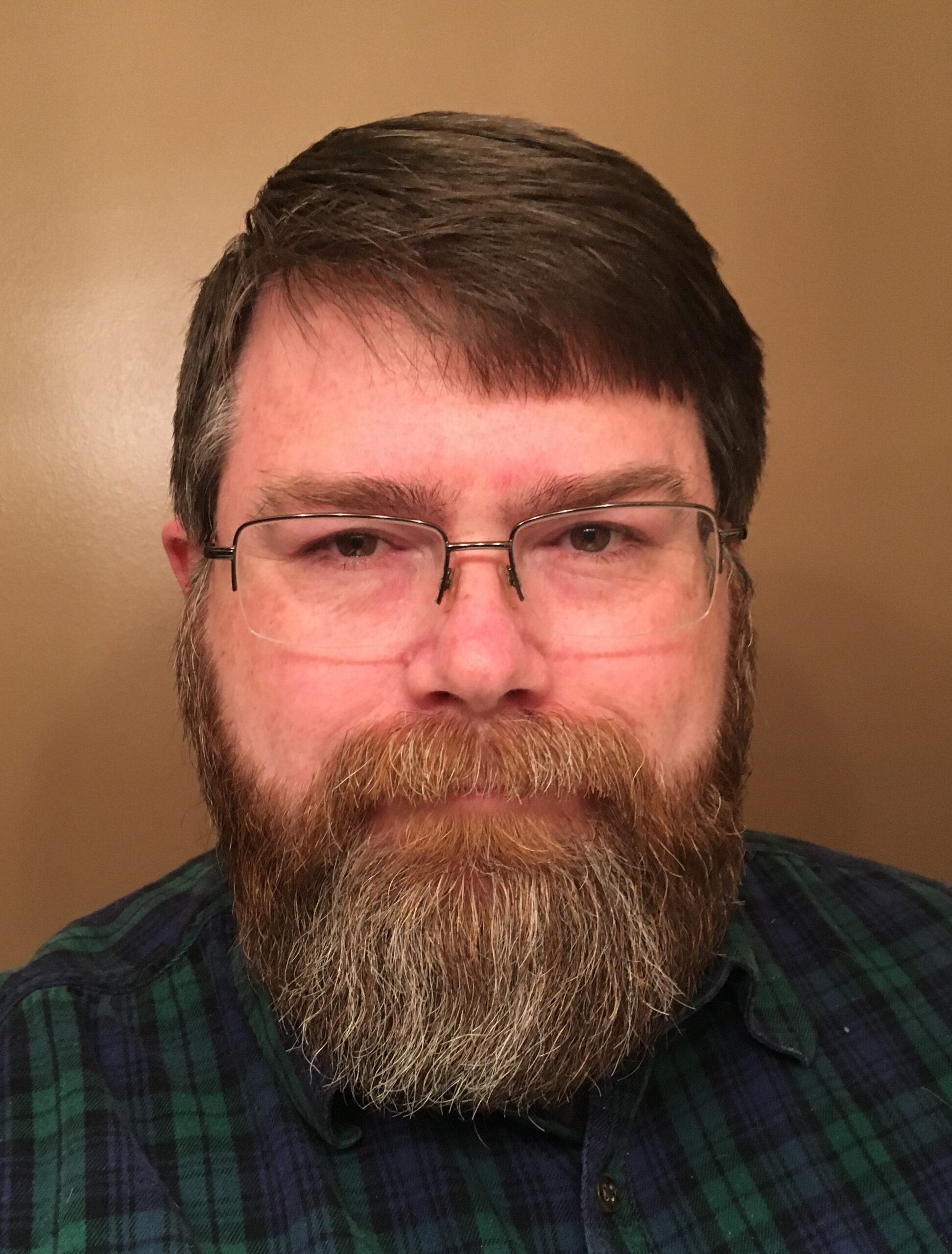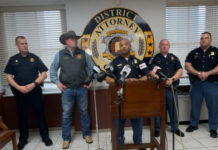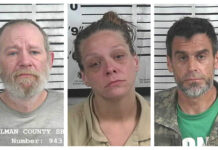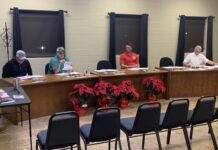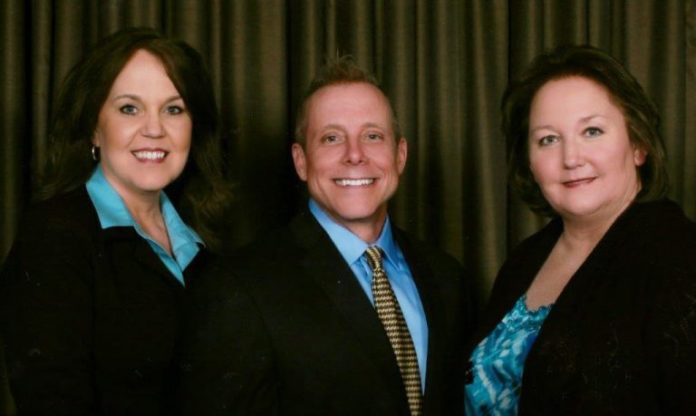
CULLMAN, Ala. – Dr. Scott Warner is a little bit of everything when it comes to medicine: pulmonary and sleep specialist for Cullman Internal Medicine and Cullman Regional Medical Center, reserve Cullman Police officer, police tactical team medic and medical director for both Cullman Fire Rescue and Cullman EMS. He has, logically, been at the center of things as area agencies come together to develop an organized local response to the coronavirus pandemic.
The Tribune spoke with Warner by socially-distant phone Wednesday afternoon about what those agencies are doing, and about what the average local citizen can do, to deal with COVID-19.
Warner shared, “Yesterday was the second meeting we had on a multi-agency level, coordinating all of our response. The first meeting was the emergency response entities in the county, which include, of course, the fire department, law enforcement, EMS (Warner later amended his list to include Cullman County EMA.). And then at yesterday’s meeting, we expanded that a little further to include other- what we consider critical infrastructure, including the department of health, including the hospital, nursing homes and included the school systems.
“So we kind of started with the core group of what we consider key infrastructure emergency response agencies, and then we broadened it to include additional key players in the community, that need to be kept up to date as to what’s going on. And then, basically, we’re sharing with each other what we’re doing, so that I am aware of what my partners in other agencies are doing.
“We want to make sure that everyone is doing okay that’s in our group here. Obviously, if you lose key infrastructure like 911, we’re all in bad trouble, so we’ve got to keep ourselves in the game. And we’ve got to see what everyone needs, so we want to make sure everyone has the correct supplies. You know, we addressed those things, education of everybody of what’s going on- kind of up to date as to the current situation in the country and in the state, and in our local community. And then, being able to share resources: if somebody needs supplies that they don’t have, then other partners will kind of help a bit.”
Warner also talked briefly about a discussed plan to create a single social media page to distribute information from all of the various agencies, but Cullman Economic Development Director Dale Greer, who has been tapped by the city to be its spokesman, told The Tribune later in the day that, since the various agencies already have well-established points of online presence, the commitment of time and effort to create a new site was determined to be unnecessary at this time.
What are you doing to keep police and emergency responders up and running?
Said Warner, “Cullman EMS has had a pandemic plan in place since 2009, when the H1N1 pandemic threatened us. Luckily, it didn’t affect here severely, but we had already operational plans for what to do if a large number of people are suddenly sick at the same time, which is devastating to any system- you can only have a certain loss of so many people at one time. And so, we’ve already had plans in place.
“So those were modified only minimally for this because, basically, the previous plan was well thought out, so only a minor modification was needed for the 2020 version of it. And so, we already kind of knew what to do if we ever get into a situation like we’re facing now; so that’s the first thing that I should mention: this is not taking us by surprise.
“We are aware that pandemics can occur at any time, so we’re not shaken by this, but we are taking it very seriously.”
Changes in emergency response procedures include limiting the number of responders to the minimum number needed for a particular type of call, to prevent potential exposure as much as possible. Warner was careful to assure that sufficient numbers would be dispatched.
“We’re not going to compromise someone’s care,” said Warner. “If they need six people, we’re going to send six people.”
In order to determine the level of response needed, Warner said that dispatchers are performing more detailed screening of calls, asking more about symptoms so the right response can be sent, and so responders can know what type and how much protective equipment they might need.
Additionally, responders have stepped up their procedures for the cleaning and sanitizing of equipment.
What can the average citizen do?
Warner said that scientists are finding more and more evidence that the COVID-19 virus can survive on surfaces outside a host for much longer than typical cold and flu viruses. For that reason, he recommended extra caution, even when no one else is around.
Said Warner, “There may be nobody in that room, but little did you know that, yesterday, somebody with the virus sneezed on the door handle. Well, you think, ‘Why do I need to wash my hands? There’s no one here.’ So that thing is educating our people as well as the public about the importance of handwashing and public surfaces like gas pumps and ATM machines, and credit card machines and grocery store buggies. That is the danger zone right here, so everybody in the community needs to be aware of that.
“The reason people are being so worked up about this on a federal and state level- it’s like this is unprecedented; I mean, probably not in anyone’s lifetime here can anyone remember anything like this. When you look around and everybody seems to be healthy, like, ‘Why are stores out of business here?’ ‘Why are schools closed?’ ‘Why are restaurants not serving their dining rooms?’ Because, if we can get people to not be together for a while, it will dramatically lower the risk of it spreading from person to person.
“And that’s the big thing here, is that we really want to prevent it from spreading and, if nothing else, we want it to spread at a slower rate. In other words, we don’t want everybody that’s going to get sick to be sick the same week. You know, if we can spread that out, we can take care of you. I can take care of five people a week for ten weeks, as opposed to 50 people in one day. So that’s the issue: we’ve got to spread it out and, hopefully, just reduce the risk.
“The other thing is that people need to take it seriously; not panic- that’s the biggest thing: there’s no need to panic about this. It is a bad infection; 80% of you, however, are going to be fine. You’ll just have a minor infection that needs to stay home. Don’t come to the hospital, don’t call 911. Stay home, take Tylenol, get plenty of rest like you would with any flu symptoms.
“It’s only those people who are having extreme shortness of breath, that kind of thing, that actually need to seek medical care, because we don’t have a specific medicine for this. So lining up at the emergency room or calling 911 is not going to make you any better. It’s just going to clog up the system and potentially spread it to others.”
What the weatherman sees
Warner finished with an analogy: “If the weatherman told you that there is a tornado signature, a hook echo, on the Doppler just west of you- take cover now- and you go outside and it looks beautiful and sunny. And you say, ‘What’s up, man? You’re worked up about nothing; it’s fine.’ But he sees what’s coming, and you only see what’s here. And that’s the message we’re trying to get out to people, is that we see what’s coming.
“Take it seriously. Stay home. It’s inconvenient, I know… but Monopoly, you haven’t probably played it in a while; (it’s a) good time to get out your Monopoly game and play it with your friends and family.
“If everyone’s cautious and uses good common sense, we’re going to get through this just fine.”
Copyright 2020 Humble Roots, LLC. All Rights Reserved.

